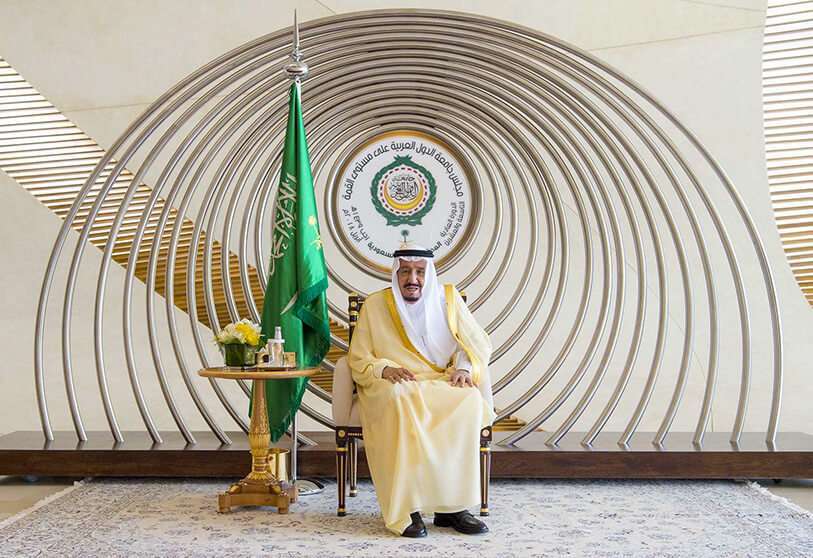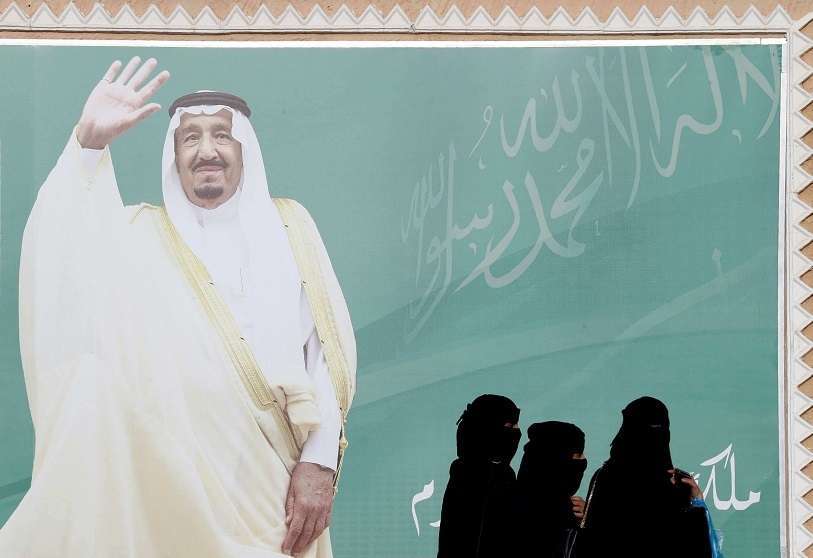King Salman bin Abdulaziz and his decisive role in Saudi Arabia's development

King Salman bin Abdulaziz al-Saud has been ruling Saudi Arabia for years, and during this period the country has become the great reference in the Middle East, leading a process of modernisation and progress that has put it on the right path for a promising future.
Throughout his long career, King Salman bin Abdulaziz has set Saudi Arabia on the path to the future as a great reference and example. The Saudi monarch carried out comprehensive economic, social, administrative and legal work that has left its mark on all aspects of the nation. Now, his son, Crown Prince Mohammed bin Salman bin Abdulaziz al-Saud intends to continue this work and is one of the driving forces behind the famous Vision 2030 strategy by which the Saudi kingdom is promoting various sectors such as energy, tourism, industry, technology and even sports in order to diversify its economy and not depend so much on the oil sector.

King Salman, 86, recently visited the hospital in the port city of Jeddah, where he stayed for a week, after undergoing "successful" medical check-ups and after resting in the hospital, he was discharged to continue his work at the head of the Arab country.
Under the leadership of the Saudi monarch, a modern, consolidated Kingdom can now be seen that is moving forward in accordance with a vision focused on economic, social and institutional reform.
Salman bin Abdulaziz's career is long and important. He first took office in the Emirate of Riyadh at the age of nineteen before becoming emir of the capital with the rank of minister and led a series of development operations in the area. This past action by the Saudi king has served as a model for his son, the crown prince, who is pursuing the same goal of national progress and modernisation. Salman bin Abdulaziz became king in 2015 when his half-brother King Abdullah died at the age of 90.

Mohammed bin Salman is the crown prince and also serves as the country's deputy prime minister (the title of prime minister held by the King) and is also chairman of the Economic and Development Affairs Council, chairman of the Political and Security Affairs Council and Minister of Defence, the youngest in the world at the time of his appointment. According to analysts, he is already acting as the country's shadow king in view of his father's advanced age and was appointed crown prince in 2017 to replace Mohammed bin Nayef bin Abdulaziz, who was removed by King Salman.
The change brought about by the accession of Mohammed bin Salman has followed in the wake of his father's dynamism that has served to move Saudi Arabia into a phase of further advancement and modernisation.
King Salman laid the foundations during his reign that began in 2015 until now, and his son Mohammed bin Salman is following the same guidelines.
Despite the fact that he is 86 years old and came to the throne relatively recently, King Salman has done a great deal of work that has made Saudi Arabia take off further; this can only be explained by the fact that from a very young age he has been working in the surplus and has been very close to the affairs of government, precisely since he took over the leadership of the Emirate of Riyadh at the age of 19.

He is the seventh king of the third Saudi state that emerged in 1902, the twentieth ruler of the Al-Saud family and the seventh son of the founding king Abdulaziz bin Abdulrahman al-Saud, which shows the trajectory and tradition that King Salman has picked up and that he obviously passes on to his son Mohammed bin Salman, as the media outlet Al-Arab pointed out.
The crown prince is very clear about who plays the role of the country's main reformer, and that is his father, and now he wants to continue in his footsteps. As Al-Arab also noted, he has the same capacity for continuity, correctness, constancy and determination.
After becoming Emir of Riyadh, Salman bin Abdulaziz began work on the city's urban development, which was fundamental, with a major deployment of transport, educational, cultural and even sporting infrastructures. This was certainly the basis or model for the more recent Vision 2030 project, which promotes different sectors so as not to depend exclusively on oil. In this respect, Salman bin Abdulaziz saw how it was necessary to develop all kinds of facilities and sectors in the territory to modernise Riyadh at the time and now Saudi Arabia in general. Many of the modernisation works attributed to Prince Mohammed bin Salman, the crown prince, are the fruit of the decades his father spent close to power.

According to Al-Arab, King Salman is also credited with a major fight against state corruption. Thanks to his great work in Riyadh, more than half a century developing the Saudi capital from 1963 to 2011, he was able to enter the most important circles of the Saudi Royal Court, becoming the secretary of the Royal Court and advisor to the different Saudi kings and princes. From his position he was able to know everyone's profile, and this helped him to detect those who were not behaving well and were eventually removed. Up to fifty prominent personalities have been arrested in recent times. They include the head of the National Guard, Prince Miteb, the son of King Abdullah, who died in 2015, and his brother Prince Turki, the former governor of Riyadh, among 11 princes, 38 ministers and deputy ministers and senior businessmen, as reported by Al-Arab. The impeachment process reached Crown Prince Mohammed bin Nayef bin Abdulaziz, who was ousted, allowing Mohammed bin Salman bin Abdulaziz al-Saud to accede to the princely post.
Salman bin Abdulaziz became crown prince in 2011 and in 2015 he became king of Saudi Arabia; thanks to his experience ruling Riyadh he was able to take over the Kingdom and put it squarely on the path of development and modernisation as he had already done in the capital of Riyadh.
The death of Crown Prince Sultan bin Abdulaziz at the age of 86 paved the way for Prince Salman to take office by a decision issued by King Abdullah on 18 June 2012 and he was subsequently appointed Deputy Prime Minister and Minister of Defence.

King Salman bin Abdulaziz has also worked to socially advance the country away from a closed and very religiously-bound environment. This is demonstrated, for example, by the rights that women are gradually acquiring in the Saudi kingdom. This social progress has moved the country away from fundamentalist extremism.
In his first year, King Salman implemented what the World Bank described as the largest 'record number of reforms' that made Saudi Arabia one of the top 20 reforming countries in the world, and the second among the top high-income countries in the G20.
Oil activity is the mainstay of the Saudi economy; the country is the world's largest hydrocarbon exporter and a major player in the Organisation of Petroleum Exporting Countries (OPEC). The oil sector is a major contributor to the country's GDP. Now, with the Vision 2030 programme sponsored by the Saudi Monarchy, the aim is to establish a strategic programme to reduce dependence on crude oil in the national energy framework in order to develop other areas such as industry, tourism, new technologies, etc.

Vision 2030 has a human capacity building programme to empower citizens through the widest possible educational and vocational training, a financial sector development programme to develop the national economy, diversify sources of income and stimulate savings, a health sector transformation programme for a comprehensive and efficient health system, a housing programme to boost the real estate sector, a fiscal sustainability programme, a quality of life programme that also allows for greater citizen participation, a public investment fund programme to develop strategic sectors, and even an industrial and logistics development programme. All of which will help Saudi Arabia face the future with a very promising outlook on the international stage.
In terms of foreign policy, King Salman bin Abdulaziz and his son Mohammed bin Salman have helped to consolidate Saudi Arabia as a major international reference point and a great symbol of the Sunni branch of Islam. They have made the country a great defender of stability in the Middle East based on alliances with other nations in order to confront destabilisation and interference from other countries such as Iran, which is the main Shiite standard-bearer. This is evident in examples such as the war in Yemen, where the Saudi-led alliance is confronting the Houthi rebels, supported by the Ayatollahs' regime and seeking to undermine the legally established government.








